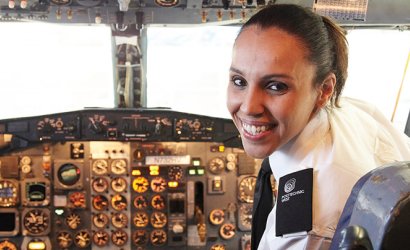

Why choose this course?
If you want a career in aviation without leaving the ground, then this course will develop your skills and knowledge in ground operations to support commercial and defence aviation flight operations.
You will learn how to apply technical and non-technical aviation skills in a range of aerodrome and air transport operations including passenger, charter, cargo, emergency service and government operations.
This qualification will provide you with the expertise to demonstrate autonomy, judgement and responsibility in known or changing circumstances that may arise in the aviation industry. It includes content on the strategic planning of airlines, the coordination of accident emergency plans of aerodromes, audit techniques and the basics of aerodrome management involving legislation and safe aerodrome works.
It is important to be aware that the licensing, legislative, regulatory and certification requirements that apply to this course can vary between states and territories.
Compliance with these requirements may be required nationally and/or in various jurisdictions globally. International students should confirm requirements for their own circumstances before they commence this course to determine its suitability.
This course is delivered at South Metropolitan TAFE’s Aerospace Training Centre, located at the Jandakot Airport. You will have access to a fully equipped aircraft hangar facility which contains various aircraft engines, workshop stations, computer facilities, a flight simulator and a number of aircraft including a Boeing 737.
Career opportunities
- Aviation Manager
- Operations Manager
-
An IELTS score (academic) of 6.0 with no band score less than 5.0 or equivalent.
-
Equivalent to Australian Year 12.
There may be further semester intakes available for enrolment. You can view any further intakes when you submit your online application(opens in a new tab).
For information about pathways from TAFE to university, view our Pathways to university page.
How to apply
Apply to study at TAFE in six steps:
- find a course;
- check entry requirements;
- submit an application;
- accept your offer and pay;
- apply for your student visa; and
- receive your visa and come to Australia for your studies.
Build your own course guide
Select the study areas, courses and topics you like. Get your custom guide by email!
Download study area guide(opens in a new tab)
Contact us(opens in a new tab)
TAFE International Western Australia (TIWA) is the Registered Training Organisation (RTO) and Commonwealth Register of Institutions and Courses for Overseas Students (CRICOS) provider, for the delivery of training to international students, enrolled in a TAFE course in Western Australia. This nationally recognised course is delivered by a Western Australian TAFE college on TIWA's behalf. TIWA retains responsibility for the quality of the training and assessment delivered by the TAFE colleges and for the issue of certification documentation to students.

